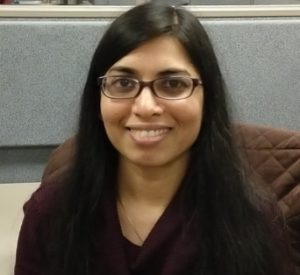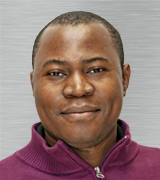
Ipek Ozkaya is the technical director of Engineering Intelligent Software Systems group at Carnegie Mellon University Software Engineering Institute (SEI). Her main areas of expertise and interest include software architecture, software design automation, and managing technical debt in software-reliant and AI-enabled systems. At the SEI she has worked with several government and industry organizations in domains including avionics, power and automation, IoT, healthcare, and IT. Ozkaya is the co-author of a practitioner book titled Managing Technical Debt and is the Editor-in-Chief of IEEE Software Magazine. She holds a PhD in Computational Design from Carnegie Mellon University.
Qinghua Lu leads the Responsible AI science team at CSIRO’s Data61, Australia. She is a principal research scientist at CSIRO’s Data61. She received her PhD from University of New South Wales in 2013. Her current research interest includes responsible AI, software engineering for AI, software architecture, and blockchain. She has published 100+ academic papers in international journals and conferences. Her recent paper “Towards a Roadmap on Software Engineering for Responsible AI“ won the ACM Distinguished Paper Award.
Lei Ma is currently an Associate Professor with shared appointments between (1) University of Alberta, Canada and (2) Kyushu University, Japan. He is also honorably selected as a Canada CIFAR AI Chair and Fellow at Alberta Machine Intelligence Institute (Amii). Previously, he received the B.E. degree from Shanghai Jiao Tong University, Shanghai, China, and the M.E. and Ph.D. degrees from The University of Tokyo, Tokyo, Japan. His recent research centers around the interdisciplinary fields of software engineering (SE) and trustworthy artificial intelligence (AI) with a special focus on the quality, reliability, safety and security assurance of machine learning and AI Systems. For more detailed information, please visit the website, https://www.malei.xyz.
Houari A. Sahraoui is full professor at the department of computer science and operations research (GEODES, software engineering group) of University of Montreal. Before joining the university, he held the position of lead researcher of the software engineering group at CRIM (Research center on computer science, Montreal). He holds an Engineering Diploma from the National Institute of computer science (1990), Algiers, and a Ph.D. in Computer Science, Pierre & Marie Curie University LIP6, Paris, 1995. His research interests include automated software engineering (SE), Search-base SE, Model-Driven Engineering software visualization, program comprehension, and re-engineering. He has published around 200 papers in conferences, workshops, books, and journals, edited three books, and gives regularly invited talks. He has served as program committee member in several IEEE and ACM conferences, as member of the editorial boards of three journals, and as organization member of many conferences and workshops. He was the general chair of IEEE Automated Software Engineering Conference in 2003, PC co-cahir of VISSOFT 2011, and general chair of VISSOFT 2013.
Reihaneh Rabbany is an Assistant Professor at the School of Computer Science, McGill University. She is a core faculty member of Mila – Quebec’s artificial intelligence institute, and a Canada CIFAR AI Chair. She is also a faculty member at the Center for the Study of Democratic Citizenship. Before joining McGill, she was a Postdoctoral fellow at the School of Computer Science, Carnegie Mellon University. She completed her Ph.D. in the Computing Science Department at the University of Alberta. Her research is at the intersection of network science, data mining and machine learning, with a focus on analyzing real-world interconnected data, and social good applications.
Danny Tarlow is a Research Scientist at Google Research, Brain Team in Montreal. He is primarily interested in machine learning methods for understanding and generating programs. However, he have fairly broad interests across Machine Learning. On the academic side, he is also an Adjunct Professor in the School of Computer Science at McGill University and an associate member at MILA. He co-supervises a couple PhD students at MILA.He holds a Ph.D. from the Machine Learning group at University of Toronto (2013). Before coming to Montreal, he spent four years as a postdoc and then Researcher at Microsoft Research, Cambridge (UK).
Emad Shihab is Associate Dean of Research and Innovation and Full Professor in the Gina Cody School of Engineering and Computer Science at Concordia University. He holds a Concordia University Research Chair in Software Analytics. His research interests are in Software Engineering, Mining Software Repositories, Software Analytics, and Software Bots. Dr. Shihab received the 2019 MSR Early Career Achievement Award and the 2019 CS-CAN/INFO-CAN Outstanding Young Computer Science Researcher Prize. His work has been published in some of the most prestigious SE venues, including ICSE, ESEC/FSE, MSR, ICSME, EMSE, TOSEM, and TSE. He is recognized as a leader in the field, serving on numerous steering and organization committees of core software engineering conferences. Dr. Shihab has secured more than $2.7 Million, as PI, to support his research, including a highly competitive NSERC Discovery Accelerator Supplement. His work has been done in collaboration with world-renowned researchers from Australia, Brazil, China, Europe, Japan, the United Kingdom, Singapore and the USA and adopted by some of the biggest software companies, such as Microsoft, Avaya, BlackBerry, and Ericsson. He is a senior member of the IEEE. His homepage is: http://das.encs.concordia.ca/.
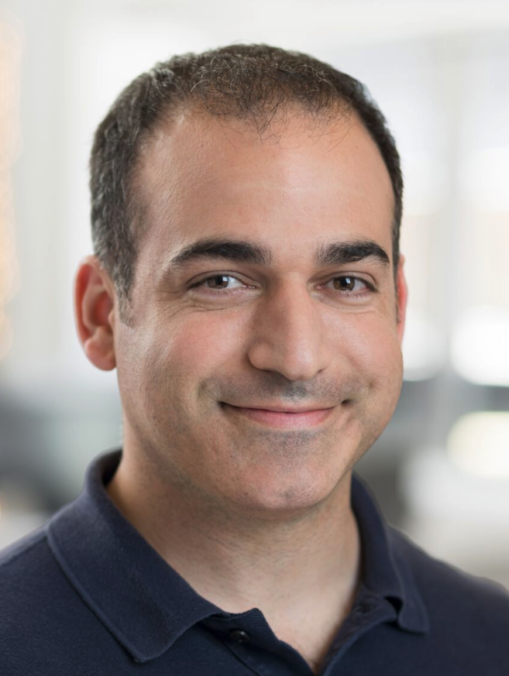
Mike Rabbat is a Research Scientist and Manager in FAIR, the fundamental AI research group of Meta Platforms. He earned the BSc degree from the University of Illinois Urbana-Champagne, the MSc degree from Rice University, and the PhD from the University of Wisconsin-Madison, all in electrical engineering. Before joining FAIR he was a professor at McGill University and he has held visiting positions at IMT-Atlantique (Brest, France), the Inria Bretagne-Atlantique Research Centre (Rennes, France), and KTH Royal Institute of Technology (Stockholm, Sweden). His research interests include optimization for machine learning, large-scale and distributed optimization, and federated learning.

Hridesh Rajan is the Kingland Professor and Chair in the Department of Computer Science at Iowa State University (ISU), where he has been since August 2005. He served as the Professor-In-Charge of the ISU Data Science program from 2017-Oct 2019. He has held visiting positions at the University of Bristol, Harvard University, and the University of Texas, Austin. Prof. Rajan earned his Ph.D. in Computer Science from the University of Virginia. He is a AAAS Fellow, ACM Distinguished Scientist and a Fulbright Scholar. He has also been recognized by the US National Science Foundation (NSF) with a CAREER award in 2009, by the Iowa State University College of LAS with an Early Achievement in Research Award in 2010, a Big-12 Fellowship in 2012, a ACM Senior Membership in 2014, an exemplary mentor for Junior Faculty award in 2017, a Kingland Endowed Professorship in 2017, and early achievement in departmental leadership award in 2022. Prof. Rajan specializes in data science, programming languages and software engineering. He is credited with giving the definitive treatment for how to modularly reason about crosscutting concerns, and for the design and implementation of the Boa infrastructure for large-scale analysis of open source software and its evolution. Prof. Rajan served as an associate editor for the IEEE Transactions on Software Engineering and as an associate editor for the ACM SIGSOFT Software Engineering Notes. He served as the general chair of SPLASH 2020 and SPLASH 2021, the ACM SIGPLAN conference on Systems, Programming, Languages, and Applications: Software for Humanity.
Shiva Nejati is an Associate Professor at the School of Electrical Engineering and Computer Science at the University of Ottawa (uOttawa) and Co-director of uOttawa’s recently established IoT Lab (Sedna). Prior to joining the University of Ottawa, she was a Senior Scientist at the SnT Centre, University of Luxembourg and a Scientist at Simula Research Laboratory, Norway. Nejati received her Ph.D. from the University of Toronto, Canada. Her research interests are in software engineering, focussing on software testing, analysis of IoT and cyber-physical systems, search-based software engineering, applied machine learning, and formal and empirical software engineering methods. Nejati has published more than 70 scientific papers and received eight best or ACM distinguished paper awards as well as a 10-Year Most Influential Paper Award from CASCON. She serves as an Associate Editor for IEEE Transactions on Software Engineering and was PC co-chair for SSBSE 2019 and ACM/IEEE MODELS 2021. She has more than 15 years of experience conducting research in collaboration with the IoT, telecom, automotive, aerospace, maritime and energy sectors.

Patrick St-Amant is the CTO and cofounder of Zetane Systems with advanced education in mathematics. He is the inventor of Zetane’s technology and leads the development of Zetane Protector (ML models robustness testing and evaluation) and Zetane Insight Engine (models introspection 3D engine). He has successfully led several end-to-end ML projects with industrial clients and partners in the fields of Security, Defense, Aerospace, Construction, Aviation, Simulation and Manufacturing. This included project scoping, ML solution design, planning, data engineering, implementation, robustness testing and client’s interactions. He has spent years as a researcher in number theory, set theory and fundamentals of mathematics. He did PhD studies in mathematics, category theories and foundation of computing at the University of Ottawa (2007). He was invited to the Institute for Advanced Study in Princeton (2006 & 2007) where he presented his work on a universal mathematical language. He has a M.Sc. degree in computer science and fundamental mathematics from UQAM and holds the patent “Scalable Transform Processing Unit for Heterogeneous Data”. Over the last five years, he met with over 200 leaders and data scientists in the field of AI and ML. Some examples include IBM, Nvidia, Thales, Microsoft, US Department of Defense, Amazon, MILA, Polytechnique, Université de Montreal, Unity, Quantum Black, CAE, MDA, Creative Destruction Lab, CNRC and others. He presented at the World Summit AI, AI for Defense, Big Data Toronto, Deep Learning Montreal and the yearly ONNX conference.
Dayi Lin is a Senior Researcher at Centre for Software Excellence, Huawei Canada, where he leads the research on software engineering for AI systems. He and team develop engineering technologies and guidelines to ensure the compliance, quality, and productivity in the lifecycle of AI systems. His research interests include SE4AI, AI4SE, mining software repositories, and game engineering. His work has been published at several top-tier software engineering venues, such as TSE, ICSE, TOSEM, and EMSE, and has attracted wide media coverage. He has served as program committee member in several conferences such as ICSE-SEIP 2023, ICSE 2022 Poster Track, and RAISE 2021. He is also the co-chair of GAS 2022. He received a Ph.D. in Computer Science from Queen’s University, Canada.
Paolo Arcaini is a project associate professor at the National Institute of Informatics (NII), Japan. He received a PhD in Computer Science from the University of Milan, Italy, in 2013. Before joining NII, he held an assistant professor position at Charles University, Czech Republic. His main research interests are related to search-based testing, fault-based testing, model-based testing, software product lines, and automated repair. In the context of the “Metamathematics for Systems Design” (MMSD) project, he has worked on search-based testing of autonomous driving systems. Currently, he is involved in the “Engineerable AI Techniques for Practical Applications of High-Quality Machine Learning-based Systems” project (eAI), where he works on fault localisation and automated repair for deep neural networks. More details can be found at https:// group-mmm.org/~arcaini/.
Jinqiu Yang is an Assistant Professor in the Department of Computer Science and Software Engineering at Concordia University, Montreal, Canada. Her research interests include automated program repair, software testing, quality assurance of machine learning software, and mining software repositories. Her work has been published in flagship conferences and journals such as ICSE, FSE, EMSE. She serves regularly as a program committee member of international conferences in Software Engineering, such as ASE, ICSE, ICSME and SANER. She is a regular reviewer for Software Engineering journals such as EMSE, TSE, TOSEM and JSS. Dr. Yang obtained her BEng from Nanjing University, and MSc and PhD from University of Waterloo. More information at: https://jinqiuyang.github.io/.
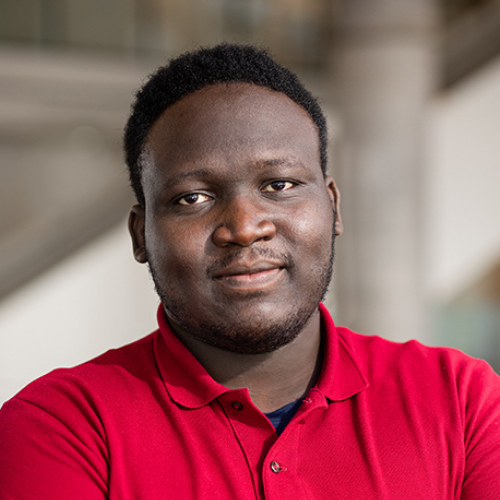
Ulrich Aïvodji is an Assistant Professor of Computer Science at ETS Montreal in the Software and Information Technology Engineering Department. He is also a regular member of the International Observatory on the Societal Impacts of AI and Digital Technologies. Before his current position, he was a postdoctoral researcher at UQAM, working on machine learning ethics and privacy. He earned his Ph.D. in Computer Science at Université Toulouse III. His research areas of interest are computer security, data privacy, optimization, and machine learning. His current research focuses on several aspects of trustworthy machine learning, such as fairness, privacy-preserving machine learning, and explainability. .
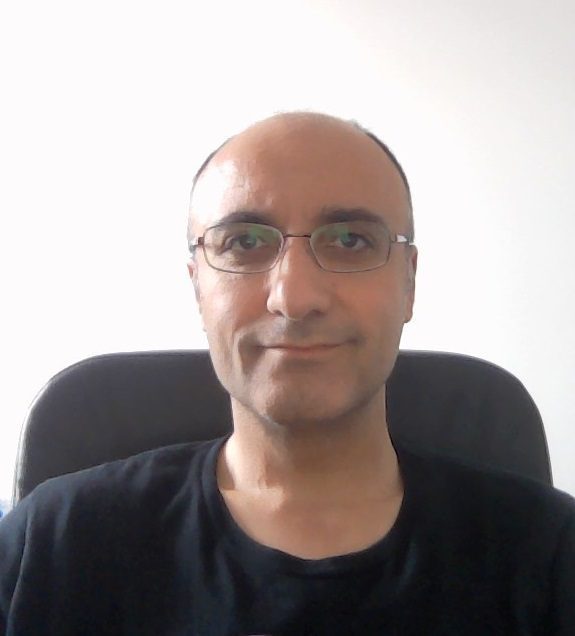
Amin Nikanjam is a research associate in the SWAT research team at Polytechnique Montréal. He is studying 1) how Software Engineering practices (like testing and fault localization) can be leveraged to Machine Learning Software Systems, and 2) how Machine Learning techniques can be applied for safety-critical systems in terms of reliability, robustness, and explainability. He received his Master’s and Ph.D. in Artificial Intelligence from Iran University of Science and Technology, Iran, and his Bachelor’s in Software Engineering from University of Isfahan. Before joining Polytechnique Montréal, he was an invited researcher at University of Montréal, and before that, he was an assistant professor at K. N. Toosi University of Technology, Iran. His research interests include Systems Engineering for Machine Learning, (Deep) Reinforcement Learning, and Multi-Agent Systems.
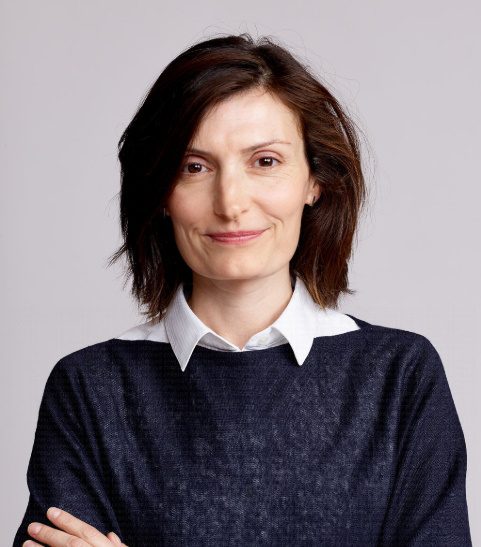
Mélanie Bosc Mélanie Bosc holds a diploma in training engineering from University of Paris 1 Panthéon-Sorbonne and a DESS in training management from the University of Sherbrooke. She developed her expertise in the field of training by starting her career at National Institute of Agricultural Research in France and then working for organizations in the banking and university fields in Quebec. In this regard, she held the position of Director of Continuing Education at the Faculty of Continuing Education of the University of Montréal. Passionate about the challenges raised by workforce and human resources issues, as well as by learning and training in all its forms, as Executive Director of the sectoral committee of the ICT workforce, Mélanie has worked to promote the ICT sector and its workforce, as well as the digital transformation of the Quebec economy in general.
Eric Laufer is the lead data scientist at Peritus.ai, a startup building tools to help monitor and grow online communities. After a master’s degree focusing on recommender systems at the MILA, Eric has worked for the last decade as an applied scientist / ML engineer for various startups and large companies. This work includes NLP (NER/Q&A/Search) for Dow Jones, Element AI and Peritus.ai, along with recommendation and supply chain forecasting for JDA. His main focus as a ML practitioner is to build efficient, scalable and useful models in the context of application development.

Gabriela Nicolescu is a full professor and the director of the Department of Computer and Software Engineering at Polytechnique Montreal. She obtained her B. Sc. A and her MSc degree from Politechnica Bucharest. She obtained her Ph.D. degree, in 2002, from INPG (Institut National Polytechnique de Grenoble) in France, with the award for Best Thesis in Microelectronics. She has been working at Ecole Polytechnique de Montréal (Canada) since august 2003, where she is a professor in the Computer and Software Engineering Department. Dr. Nicolescu’s research interests are in the field of design methodologies, programming and security for systems with advanced technologies, such as 3D multi-processor systems-on-chip integrating liquid cooling and optical networks. She published five books, and she is the author of more than a hundred articles in journals, international conferences and book chapters.

Philippe Molaret is VP research & technology at Thales Digital Solutions. TDS is a center to support Thales Group digital transformation on the backbone of Montreal digital intelligence ecosystem. Cofounder of the cortAIx AI research lab in TDS. Currently sponsoring actively the creation and buildup of the Confiance.ai program at CRIM and the ENGINE NFPO for the adoption of 5G technologies. He is a member of Ivado technology transfer committee and Prompt board of directors. Occasionally he is teaching technology and innovation management at Polytechnique Montreal master and PhD training. Between 2010 and 2012 he was ETS Research and Innovation ambassador. In 2002 he is one of the founding members of CRIAQ and sat on its board of directors until 2015. Industry member of MEI strategic council for research and innovation in 2009, leading to the development of the 2010-2013 Quebec Strategy for Research and Innovation. Before joining Thales, Mr. Molaret worked at CAE for 18 years. Mr. Molaret graduated in electrical engineering from ETS in 1990 and obtained a master degree in Technology and Innovation management from Polytechnique Montreal in 2017.

Pablo Samuel was born and raised in Quito, Ecuador, and moved to Montreal after high school to study at McGill. He obtained his PhD from McGill, focusing on Reinforcement Learning under the supervision of Doina Precup and Prakash Panangaden. He has been working at Google for over 10 years, and is currently a staff research Software Developer in Google Brain in Montreal, focusing on fundamental Reinforcement Learning research, Machine Learning and Creativity, and being a regular advocate for increasing the LatinX representation in the research community. Aside from his interest in coding/AI/math, Pablo Samuel is an active musician.

Emmanuel Thepie Fapi is currently a Senior Data Scientist with Ericsson, GAIA AI-Hub, Canada. He obtained a bachelor’s degree in applied mathematics from Douala University, Cameroon. He holds a master’s degree in engineering mathematics and computer tools from Orleans University and a PhD in signal processing and telecommunications from IMT Atlantique in France (former ENSTB de Bretagne), with Nokia Siemens Network as host laboratory in Munich Germany. From 2010 to 2016 he worked with GENBAND US LLC, QNX software System Limited as audio software developer, MDA system as analyst and EasyG as senior DSP engineer in Vancouver, Canada. In 2017 he joined Amazon Lab 126 in Boston, USA as Audio Software Developer for Echo dot 3rd generation. His main areas of interest are 5G network and beyond, Anomaly and Intrusion detection-based AI/ML, Network Observability, Predictive maintenance, Real-time embedded OS, Distributed AI/ML, IoT, Voice and Audio Quality Enhancement. He received in 2022 the Ericsson Impact Award and is the SPOC of Edge Computer Cluster project of MITACS Program at Ericsson, with six projects, in collaboration with four Canadian Universities.

Sushmitha Bala is an AI Architect for the AI Factory team at National Bank of Canada. The team is responsible for the deployment and industrialization of AI models in production. Following a master’s degree focused on game theoretic constructs in applied economics and statistics, Sushmitha has spent the last decade in various analytics and data-centric roles in the financial services industry, delivering crucial initiatives for companies such as JP Morgan and National Bank. In her current role, she is responsible for designing AI model architecture that balances delivering value while remaining pragmatic, scalable and secure.



